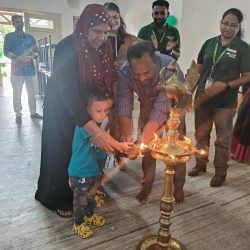“It is not in our culture” – Really?
In the APLI newsletter, Wendy Salmon talks about doctors’ refusal to accept the inevitability of death. She keeps on hearing the words, “it is not in our culture” and wonders how this can be true.
The newsletter also gives other stories, especially the one by Usha Ravi in which failure to accept the inevitable, results in continuation of useless treatment which only adds to the patient’s suffering. The medical system is reluctant to change, saying, discussion on death is not in our culture.
Echoing Wendy Salmon’s words, let us ask, “Really? Discussion on death is not in our culture?” On the other hand, we think Indians traditionally have accepted death as the inevitable consequence of life.
Where death does not figure is in the Indian “Medical” culture. Since the advent of modern medicine and its progress into the high-tech domain, the medical system here has steadfastly learnt to see death as the failure of treatment. Well, it is mostly in the professional’s attitude that death is seen as the enemy. But it must also be recognized that over the last half century, a large chunk of the public has also learnt to imbibe this culture of aggressive treatment to the end of life. Understandably, this causes a lot of suffering.
The “culture” has to change. Most people welcome such discussion and are grateful for it. Those who are afraid of the word death, whether they are professionals or laymen, need help. Needless to say, it would be necessary to prepare a family to receive the news when they are not ready for it.
There is really no justification for infliction of needless suffering, when someone is dying.




